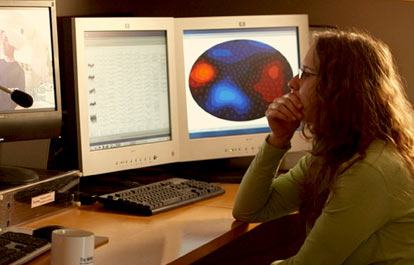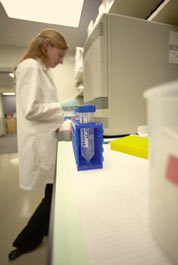

Scientific Lectures //
Precision Medicine Approaches to Enhance the Diagnosis and Prognosis of Neurological Injury
Robert Meller, D. Phil.- Associate Professor, Departments of Neurobiology & Pharmacology, Morehouse School of Medicine
Presented: August 2, 2016
ABSTRACT: The field of precision medicine, based on the genomic analysis of a patient may yield treatment breakthroughs, allowing the tailoring of a specific drug to a specific condition. However the precision medicine approach may have greater utility than just identifying patients for therapy. Here I will discuss our recent work using a precision medicine approach to identify patterns of RNA expression in blood as a biomarker for stroke diagnosis and prognosis. The treatment of acute neurological injuries is hampered by the lack of biomarkers for such diseases. For example, stroke, induced by a blockage or reduction in blood flow to the brain, must be accurately diagnoses prior to the initiation of therapy. Specifically, hemorrhagic stroke must be ruled out, before a thrombolytic drug can be administered. While this occurs with some efficiency in specialized stroke care centers, too few patients have timely access to such specialized care. As a result it is estimated that only 5% of stroke patients receive thrombolytic therapy. Clearly a case can be made for the need for better diagnostic approaches. Our approach is to perform whole transcriptome sequencing of blood. Our studies reveal unique profiles in blood that enable a diagnosis to be made. More remarkable this approach also identifies patient outcome, suggesting a prognostic utility. We further this work by showing unique profiles of RNA expression in blood in concussed patients, which yield remarkable ability to predict the patient diagnosis of concussion and other concomitant disorders. The approach of utilizing whole transcriptome analysis as a guide for precision medicine is clinically feasible with new rapid sequencing approaches. Clearly the precision medicine revolution is starting, but here we use this approach to improve diagnosis of complicated disorders.

